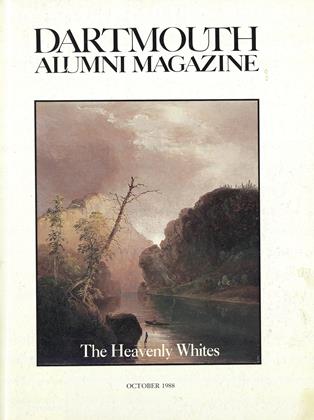[Authors' names are given in customary Japanese order: surname first, then personal name. All the authors except Soseki are referred to by their family name. Books date from the turn of the century to the 1960s, and entries are listed chronologically.]
Natsume Soseki, Kokoro. Translated by Ineko Kondo (Kenkyusha). Soseki is acknowledged as the first great modern master of the Japanese novel. Kokoro combines simplicity of structure with a complex meditation on the personal and social contradictions of a modernizing Japan. An aging teacher's guilty memory of how he once betrayed a friend subtly counterpoints a young student's alienation from both his traditional family and a modern world in which he has not yet found his place.
Tanizaki Jun'ichiro, Naomi. Translated by Anthony H. Chambers (Putnam Perigree). A wry look at Japanese society's giddy imitation of Western life in Tokyo and Yokohama just before the great earthquake of 1923. A young man's sexual obsession with a cafe hostess, whom he tries to reshape into his ideal of a modern, westernized Japanese woman, ends up destroying him when Naomi learns her lessons all too well.
Kawabata Yasunari, Snow Country. Translated by Edward Seidensticker (Putnam Perigree). Kawabata won the Nobel Prize for literature in 1968 for an earlier series of novels in which he married traditional Japanese aesthetics and his own interpretation of European poetry and literature. Set in a hot springs resort in japan's deep snow country, this story of an indecisive young man, the geisha who loves him, and a beautiful young girl who fascinates him from afar has the sparely evocative quality of the best haiku poetry.
Dazai Osamu, The Setting Sun. Translated by Donald Keene (New Directions). When this novel appeared just after the second world war, Dazai was acclaimed as a spokesman for a whole generation ofapanese, those for whom the war meant not only death and ashes but the destruction of the whole prewar social order that allowed them to make sense of their lives. Kazuko, a young woman from an aristocratic but impoverished family, and her brother Naoji, an ex-soldier and drug addict, confront their own meaninglessness in an isolated country house as they tend their dying mother, "the last lady in Japan." The novel ends with an ambiguous affirmation of the value of human life, an ambiguity underlined by Dazai's own suicide not long after it was written.
Oe Kenzaburo, A Personal Matter. Translated by John Nathan (Grove). Oe uses the birth of a grossly deformed infant to capture the anomie of modern Japanese life. Bird, the baby's hapless father, tries to escape the baby and his own fate by inflicting destruction upon himself—in the form of alcohol, hopeless fantasies of escape, violent sex, and public selfabasementant and by very nearly murdering the baby. That Bird should fail even at destroying himself is, of course, the final irony, and the novel ends with his resigned acceptance of his responsibility for the child and himself.
Mishima Yukio, The Sailor Who FellFrom Grace With the Sea. Translated by John Nathan (Putnam Perigree). Of all modern Japanese novelists, Mishima is the one best known in this country, though he is unfortunately—and rather unfairly—renowned for his histrionic suicide rather than for his novels. This is one of Mishima's most successful explorations of his characteristic preoccupation: the inseparability of violence and perfect beauty. Sailor depicts a young boy's obsessive fascination with his mother's lover, an exquisitely handsome young seaman, and the process by which the boy and his friends reach the decision that the sailor must die.
Ibuse Masuji, Black Rain. (Bantam). This book combines fiction and nonfiction in an understated, compassionate rendering of the bombing of Hiroshima and its interminable aftermath. Scenes of a family's everyday life 20 years later alternate with their diary excerpts written during the first few days and weeks after the bomb fell. As a result of this interplay of vignettes, ordinary people take on both a heartbreaking fragility and an extraordinary power and strength. Of all the books that have been written about Hiroshima, this is perhaps the best, and it deserves to be much better known in this country.
 View Full Issue
View Full Issue
More From This Issue
-
 Cover Story
Cover StoryPutting Heaven in Perspective
October 1988 By Karen Endicott -
 Feature
FeatureThe Zen of Football
October 1988 By Nick Lowery '78 -
 Feature
FeatureScions Of The Times
October 1988 By Fritz Hier '44 -
 Feature
FeatureChecking into the Inn and Out of an Era
October 1988 By John Townsley -
 Feature
FeatureIs the Indian Symbol a Right or an Opportunity?
October 1988 By George B. Harris III '50 -
 Article
ArticleFunded Research Rises
October 1988







